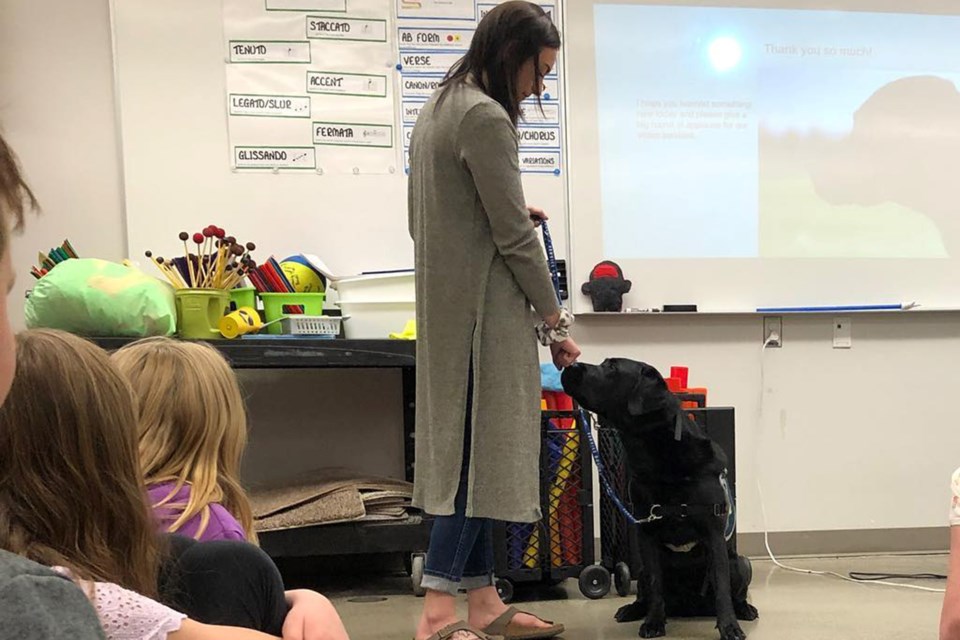OLDS — The days are ticking down to the shut-down this fall of Chinook Arch Victim Services Society (CAVSS), which has helped victims of crime or tragedy in Olds and area for about 25 years.
CAVSS works with Olds, Didsbury and Sundre RCMP detachments to provide that support.
That can involve everything from helping victims navigate the court system to consoling and finding shelter for people who are homeless, due to situations like fires or domestic abuse.
CAVSS and all other victim services societies will cease receiving grant funding by the end of September, at which time, four new “superboards” will replace them.
Olds and area will be covered by the Southern Alberta Regional Victim Serving Society.
Society chair Miranda Dulmage and Rhonda Kerns, the organization’s executive director, made a presentation to council this spring concerning its demise.
Town council agreed the organization has been a valuable one and vowed to add it to their list of “advocacy priorities.”
There’s concern the new “superboards” won’t continue doing all the work the victim services societies have done.
For example, for the past 10 years or so, like other victim services organizations, CAVSS has helped console people – especially children – affected by crime, violence or tragedy with the help of service dog Carter.
Dulmage told council that it’s her understanding that the new boards won’t be funding the use of victim support dogs.
In an email, Dulmage told the Albertan that “after engaging in the hiring process with the new southern superboard, none of our three program staff are opting to continue to work in this region.
“Our board and program will continue operations until September. We are doing our best to maintain service standards for our communities until that point.
“Clients are aware that the existing program will not be continuing but we do not have sufficient information yet to let them know what transition will look like or who will be supporting them following our shutdown in September.”
In May, Dulmage said the CAVSS board learned that the money it had fundraised to pay for things like helping victims find housing after a crisis and money for essential supplies had mostly run out.
“Given the fact that we cannot do any significant fundraising at this point we are having to make hard decisions,” she wrote.
“Basically it has come down to whether we continue to support people in need, beyond the court process, or keep our dog service as long as possible.
“The current situation is putting a great deal of stress on our front-line staff, as they are witnessing a steady erosion of their service mandate and are the ones having to tell clients that we cannot support them in ways that we have been able to, even weeks ago.
“This is causing no shortage of moral and ethical anxiety among the VSU (Victim Service Unit) provider community.
“We are limited in what we can do in the face of government systemic change, but to badly paraphrase (the late poet) Dylan Thomas, we are choosing to not go gentle into that good night and will rage until the light dies entirely.”
The Albertan contacted the province’s public safety and emergency services ministry for comment on the matter and received an emailed reply from public safety and emergency services press secretary Arthur C. Green.
“Alberta’s government is committed to ensuring victims of crime and tragedy have access to the critical services and supports they need, both to mitigate the immediate after-effects of an event, and as they navigate complex criminal justice system processes,” he wrote.
“We are moving towards a regional governance model with four integrated Regional Victim Serving Societies (RVSS).
“The move to a regional governance model for RCMP-based victim services is intended to enhance supports for people in smaller communities and rural and remote areas of Alberta who had no victim services at all.
“The addition of full-time centralized professional support staff (CPSS) within each region, reporting to the regional society and providing real-time strategic, logistical and administrative support to frontline employees, will streamline operations and foster collaboration across regions.
“The new system will also serve victims of tragedy and non-criminal events in a more structured, consistent and sustainable way than what currently exists.
“As the new victim services model is implemented, communities throughout the province, including the town of Olds, will continue to have de-centralized victim services staff co-located in their local RCMP detachments as is currently seen today.
“Although board governance is moving toward integration, all frontline services will remain local.”
Green confirmed that under the new system, "the new model does not currently include a province-wide service dog program.”
“This does not, however, preclude the new societies from exploring this opportunity in the future,” he wrote.
Green noted that current RCMP-based victim service units are receiving grant funding through September “ to ensure a smooth transition.”
He said the new regional societies will assume full operations in October.



